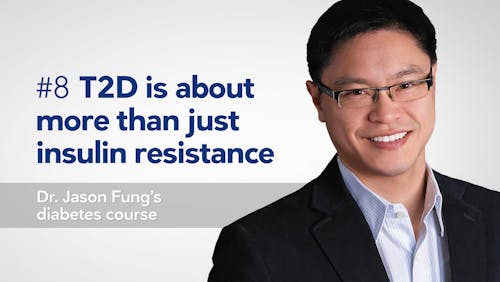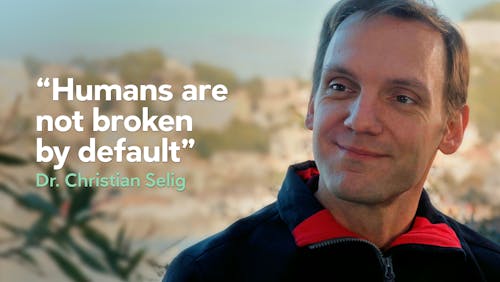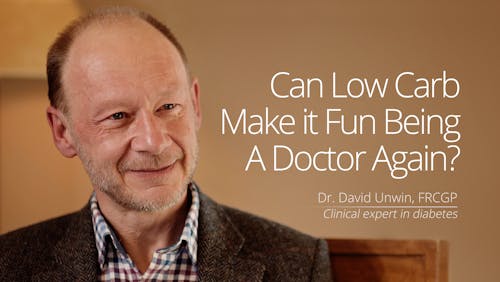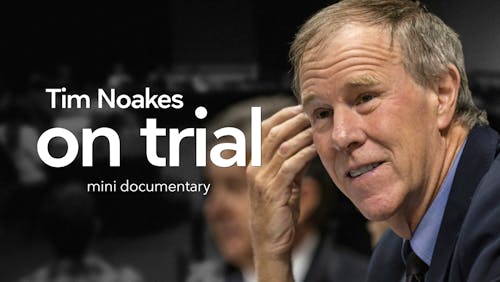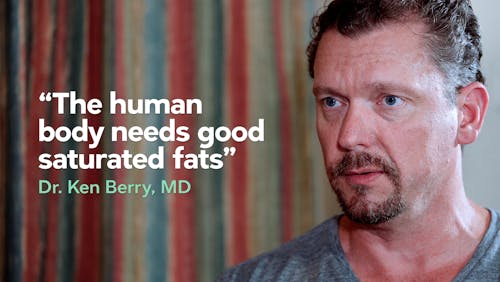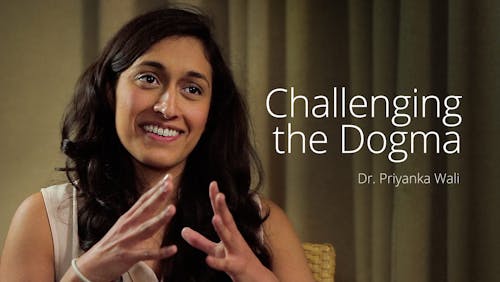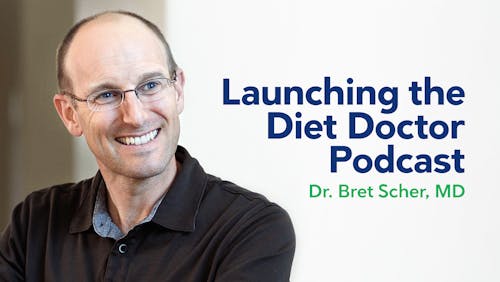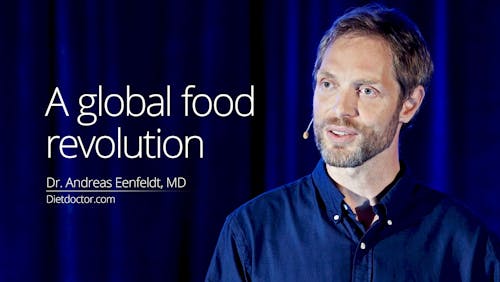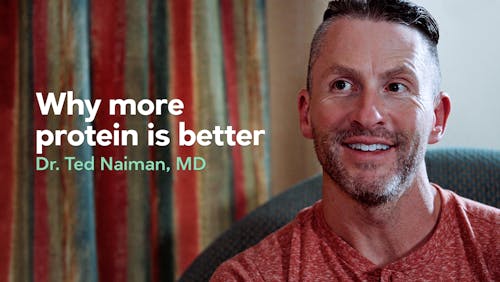Do you have emotional intelligence? Why you (and Will Smith) may need it

Dr. Tony Hampton is a family physician on the South Side of Chicago. He is writing a monthly column for Diet Doctor. This is his 15th column.
Do you reach for something to make you feel better or to numb the discomfort?
Are you not even aware that you are feeling — and unconsciously reacting to — an uncomfortable emotion?
How you recognize and respond to your various emotions is a fundamental skill to hone in your wellness journey.
We all witnessed a graphic display of poor emotional regulation and emotional response when an angry Will Smith slapped Chris Rock at the Academy Awards. It may seem unrelated to issues like weight loss and health, but it is not.
In my R.O.P.E. acronym, the “E” stands for emotions and experiences and how they impact our health-related goals.
(For those of you who are reading my column for the first time, I have two acronyms I use with my patients to help them focus on the things that can make them healthier. The first is “Protect your N.E.S.T.,” in which the letters stand for Nutrition, Exercise, Sleep/Stress, and Thoughts/Trauma. The second is “Use your R.O.P.E. to get to your N.E.S.T.” The letters for R.O.P.E. are Relationships, Organisms, Pollutants, and Emotions/Experiences.)
In this column, I’ll focus on emotional intelligence.
In my experience, both in my own life and with my patients, how we recognize and respond to emotions can be crucial to our personal and professional success.
If we acquire the capacity to have emotional awareness and emotional control, we are more likely to be able to better achieve both personal goals (like resisting high carb foods) and professional goals (like having patience and emotional control at work).
Let’s explore this more deeply.
What is emotional intelligence?
Emotional intelligence has been defined as the ability to perceive, manage, and regulate our emotions. It is also the ability to recognize, understand, and influence the emotions of others.
As humans, we all experience a range of common emotions. But some of us are at the mercy of our emotions. Sometimes we may not even recognize or understand the emotions we are experiencing and how they impact our behaviors.
The term emotional intelligence was created by two US researchers, Peter Salavoy and John Mayer, in their 1990 article “Emotional Intelligence” in the journal Imagination, Cognition, and Personality. It was later popularized by writer Dan Goleman popularized the concept in his 1995 best-selling book Emotional Intelligence — Why It Can Matter More Than IQ. Now hundreds of articles and books have been written about it.
Goleman notes that in practical terms, emotional intelligence means that we are aware that our emotions can drive our behaviors, positively and negatively. Surging, unregulated emotions can change the way our brains function “diminishing our cognitive abilities, decision-making powers, and even interpersonal skills,” Goleman says.
What does emotional intelligence look like?
I highly recommend Goleman’s book. It made a big change in my life. And I encourage you to read it. Here is Goleman’s framework for the five elements that define emotional intelligence:
- Self-awareness:
This is the ability to recognize and understand our emotions and what may influence them. It is being able to identify them correctly and recognizing how they may influence our reactions and behaviors. Having an awareness of our emotions allows our emotions not to rule us.For example, emotions like fear, anxiety, or sadness can cause us to seek relief in foods or alcohol. This response may not really get to the root of the issue and can even make things worse. So the next time you feel an emotion, pause for a moment and just reflect on it before you react to it. What is the emotion you are feeling? Why has it arisen at this moment? What could be a healthy way to alleviate it? Can you just sit with it and let it be?
- Self-regulation:
This element is all about the appropriate expression of our emotions. It can be hard to do when emotions are running high.Let’s go back to the 2022 Academy Awards. Will Smith had a right to feel anger at the insensitive joke about his wife’s appearance. But he showed a distinct lack of self-regulation when he strode up and slapped Chris Rock. It was not an emotionally intelligent reaction.I can recall my own poor self-regulation and resulting inappropriate expressions of my emotions. I remember times as a younger physician when I was intent on helping patients heal from chronic medical conditions. I thought I had all the answers. I eagerly gave patients advice. But when they struggled and didn’t follow my recommendations, I responded at times with disappointment, frustration, and even anger.
Most of the time, this emotional turmoil was just internal to me and it simply made me crabby. But a few times, I verbalized this frustration to the patient. That was poor self-regulation and an inappropriate and emotionally unintelligent response — not helpful them or to me.
Self-regulation is being able to check your knee-jerk emotional responses, taking control of your emotions or impulses, and being able to respond in a measured, effective, and thoughtful way. It is not allowing yourself to respond the way I did.
Now, when interacting with patients, I monitor my emotional responses and respond with thoughtful, comforting actions. I aim to meet people where they are.
- Empathy:
This flows right from the previous skill. Most people believe that self-awareness is the most important aspect of emotional intelligence, but in my own growth of the skill, progress has come by developing and tapping into empathy.Having empathy simply means being able to hear and see the needs, wants, and viewpoints of others. By recognizing the feelings of others, we are better able to see it in ourselves and have better relationships and understanding.The skill of empathy is needed in all aspects of our lives, including how we interact with people of different ethnicities, social or economic status, sexual orientations, body size, intellectual abilities, and more. It also means having empathy for ourselves.
- Social skills:
This component is all about how you interact and communicate with others. These are the skills of active listening, verbal communication, non-verbal communication, and developing rapport with others.Social skills can come easily to some and be a struggle for others. But the skills can be developed and practiced. People with good emotional intelligence are able to work with others to solve problems, overcome obstacles, manage disagreements, and build/maintain strong relationships.
- Self-motivation:
People with strong emotional intelligence have a strong sense of personal motivation that does not need others to reward them with money, fame, or recognition. They do it for themselves — which is called “intrinsic motivation.”Think about your desire to lose weight or achieve a health goal. What has motivated you to take this journey? Are you doing it for someone else, to win their love or approval? Or are you doing it for yourself, out of your own desire to reach a personal goal?
When you are self-motivated, you are more willing to delay quick results in lieu of long-term success. You are also more resilient to face the things that challenge you. You are less swayed by the opinions and comments from others who may try to deter you from your path.
My personal motivation is to help millions of people achieve optimal health, including everyone reading this column, listening to my podcast, or watching one of my YouTube videos.
How to improve your emotional intelligence
Wherever you are in your level of emotional intelligence, you can improve it.
Why would you want to? Improving your emotional intelligence may increase your success at weight loss, decrease your risk of addiction to alcohol or drugs, reduce your potential risks of heart disease, and decrease your risk of depression or other mental health conditions. It may also improve your professional success.
Here are five ways to increase your emotional intelligence:
- Self-assessment:
Start with evaluating your emotional responses. Spend a week or two taking a close look at how your respond to your emotions and to other people who trigger your emotions. Not sure? Take this quiz to see where you currently stand: https://www.mindtools.com/pages/article/ei-quiz.htm - Be responsible for your actions:
If you have a knee-jerk emotional reaction, especially if it impacts another person, own it. Apologize for it. Examine why it happened. Find ways not to let it happen again.In my own life, I apologized to a patient who frustrated me when he would not follow my low carb advice. I felt I knew what was best for him, and that he was rejecting my expert advice in favor of advice from others who did not have my experience. Interestingly, when I apologized, my change of emotional response, and my humility and empathy to understand it from his perspective, resulted in the patient deciding that he would give the low carb diet a three-month trial. He changed when I changed.
Taking ownership of my inappropriate emotional response enabled me to grow in my emotional intelligence and helped my patient, too. It was win-win.
- Deal with conflict calmly and unemotionally:
Conflict, like it or not, is part of life. As we improve our emotional intelligence, we are better able to handle conflict without making impulsive decisions. Instead of lashing out, or doing something inappropriate, we can remain calm. Being conscious of when we are feeling anger or disagree with another person will allow us a moment to pause and reflect so that our actions are aligned with who we want to be.It can be as simple as stopping and counting to 10. Don’t be a hot head.
- Active listening:
This is the skill of giving complete and focused attention to the speaker. It encourages respect and understanding. It is listening, not to jump in to respond, but to let the other person speak without interruption and truly hear what they are saying.At my health organization, we are trying to foster this type of listening between doctors and patients. Check out my podcast where Dr. Stephen Beeson shared tips on how we should actively listen to patients. But you don’t have to be a physician to apply these same principles in your life.
- Accept critique:
Very few people welcome criticism. But in order to grow, we must hear from others who may be able to provide helpful advice. Are you able to hear advice or feedback without becoming defensive?People with well-developed emotional intelligence are able to learn from others and use that information to improve who they are becoming. So consider asking those whom you trust for feedback.
I hope this brief exploration of emotional intelligence helps you start to examine where, in your own life, your emotions may be driving negative behaviors that you can change.
For another Diet Doctor resource, check out this column “Is it hunger or is it something else?” by senior writer Anne Mullens. In it, she takes us through how analyzing a hidden emotional response helped her understand why she was suddenly craving high carb food. It’s a great example of how you can develop emotional self-awareness and regulation through a deliberate process of self-examination.

